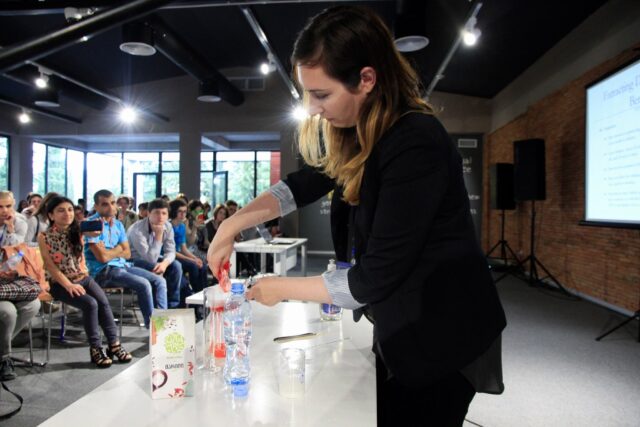
Chemistry is integral to beer and wine. Without the proper mix of carbon dioxide, nitrogen, and other compounds, the beer and wine many of us enjoy would not be possible.
Students interested in learning more about the topic can enroll in the Chemistry of Beer and Wine course through SDSU Global Campus.
The course explores chemistry and its application in creating wine and beer. Beer and wine will be broken down to the molecular level to help you gain an understanding of how fermentation works to create such radically different alcoholic beverages. We’ll also learn about the different flavor notes that are added into alcoholic drinks for enhancement.
The class meets in person on Saturdays from March 11 to May 6 (except Memorial Day Weekend) from 9 am to 12 pm on the SDSU campus. Tuition is $449 and the last day to register for the class is March 10.
Three Questions
We asked instructor Chemistry of Beer and Wine instructor Theresa Carlson – who also is a lecturer in the SDSU Chemistry Department – three questions about the topic.
1: What role does chemistry play in brewing?
In the process of brewing, the chemical compounds give a distinctive taste, smell, and appearance. The different chemical compounds come from the metabolic activities of plants and yeast that are used in the beer-making process. For example, when you heat up malt enzymes you convert the starch into sugars and amino acids. Then to convert the sugar into ethanol and carbon dioxide, you add yeast to act as a catalyst (to speed up the reaction). The amino acids, themselves, produce the nitrogen necessary for the growth of the yeast. Other chemical aspects are pH, the flavors that affect the palate of the consumer, and the causes of “off flavors” from chlorine or contaminants found from an incorrect ratio of sulfate to chloride.
2: What topics will students learn about in the course?
In this course, we will be focusing on the chemical components that affect the flavors of beer and wine. We will create some of these flavors in a lab setting, and we will also analytically (using chemical instrumentation) analyze these flavors with different instrumentation (HPLC, GC, UV-Vis, and IR), and we will analytically analyze how the process of fermentation affects the flavor of the beer.
3: How does this course help prepare students for a career in brewing?
By understanding the chemical components of flavors, those taking this course will be able to analyze their own beer and be able to create a better product (beer), enhance the flavors of the beer, and be able to properly distinguish the flavors in the beer (product).


